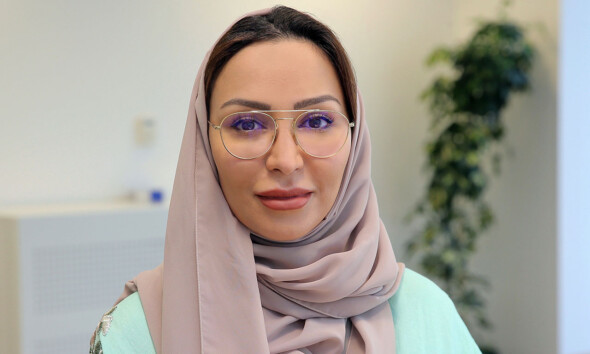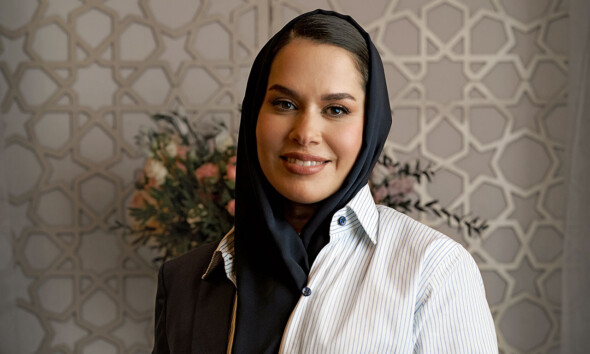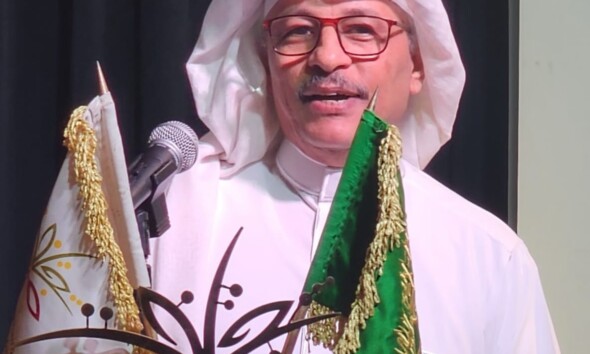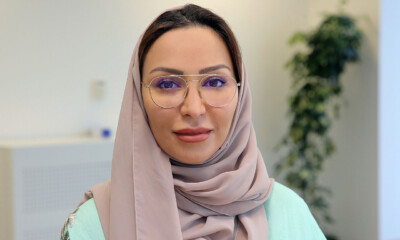Home » Saudi Arabia » Artificial Intelligence’s New Applications to Boost KSA’s Economy
Saudi Arabia
Artificial Intelligence’s New Applications to Boost KSA’s Economy
Published
7 months agoon
By
Huda
Artificial intelligence has emerged as a highly significant technological advancement. In recent times, it has played a vital and renewed role in the global economy’s structure.
Estimates suggest that this field will significantly boost global GDP by more than 13% by 2030.
Subsequently, it has become clear that it plays an essential role in enhancing the productivity and efficiency of key industries. In turn, it improves overall economic performance and creates new opportunities for resource diversification and growth—a goal that the Saudi plan aspires to.
Written by: Mohsen Hassan
Artificial intelligence has vast potential, with significant investments of over 90 billion dollars in 2022 alone. Its diverse and adaptable roles can be applied to any sector of the local economy. Developing or developed nations can contribute to excellence and modernisation, as seen in the Kingdom’s national economy.
For instance, this field supports national companies in enhancing the gross domestic product. Along with the diversified economy in terms of resources and products by providing accurate and thoughtful strategic insights. It also assists in the making of economic decisions in the Kingdom of Saudi Arabia.
As an illustration, the Kingdom uses machine learning techniques to analyse consumer behaviour. Besides, it forecasts future trends in markets, goods, and merchandise. This helps to improve marketing strategies and product development for local, regional, and global needs.
According to the Global Index for Artificial Intelligence 2023, the Kingdom ranks second in the Arab world and thirty-first overall. It aims to improve its level of professionalism in this area in the upcoming years. Particularly, since it ranks first globally in terms of government strategy within the same index, as it did in 2022.
In addition, the Kingdom ranked second in the Arab world with a score of 59.26. According to the assessments of the Digital Performance Index for the Arab Gulf countries. Saudi institutions are using artificial intelligence systems to improve operational efficiency, production speed, and quality by automating routine tasks.
Read more: SDAIA Declares the Opening of AI Offices Across 23 Saudi Government Entities
This reduces the time, effort, and resources used in all simple and complex production tasks. Additionally, it is currently making it possible to employ smart robots in many industrial sectors and production lines.
By installing intelligent systems, teaching employees smart order forecasting, and examining shipment data, Saudi Arabia is improving supply chain management. This entails enhancing the quality of the national services offered and the customer experience. This astute prediction aids Saudi businesses in monitoring client preferences. It analyses this behaviour to enhance its ability to provide customised experiences.
This way, the client experience is positively correlated with the products offered and the businesses that supply them. Both in terms of ongoing business relationships and demand for all new products introduced, which increases sales volume.
Comparably, Saudi Vision 2030 aims to harness artificial intelligence to create job opportunities for young Saudis. Despite concerns about job losses due to its limitless potential, the current situation in Saudi Arabia demonstrates otherwise.
Furthermore, this sector generates new employment opportunities requiring advanced skills. So, the Saudi labour market needs to carry out its reform and modernisation plans. Eventually, Saudis’ human development experience in this crucial sector grows.
Consequently, the growing number of young Saudi professionals in data analysis, software development, and smart systems management is due to high educational and training standards. As well as the significant investment in these fields is to adapt to the ongoing reforms in Saudi society.
By 2030, artificial intelligence will account for over 10% of Saudi Arabia’s GDP. And by 2025, the number of Saudi workers employed in this sector will likely exceed 97 million.
Read more: Saudi Arabia’s Digital City: A Journey into the Knowledge Economy
The Kingdom is working to broaden the field of artificial intelligence in ways that are consistent with the economic, social, and humanitarian goals of the 2030 and 2040 strategies. The most significant of which is the environment and health.
Artificial intelligence is being utilised in the Saudi health sector to improve healthcare quality and reduce patient costs. The initiative recognises the significant impact of food and the environment on health. It uses applications to diagnose diseases and analyse medical images, thereby enhancing the overall healthcare experience.
First off, ensuring that artificial intelligence could enter the agricultural industry, which is necessary to increase crop productivity. To accomplish this, they make astute efforts to enable the provision of qualitative services such as soil and climate data analysis and precise farmer advice. Secondly, developing sophisticated applications that enhance environmental sustainability by reducing waste, increasing resource efficiency, and improving building efficiency, thereby reducing carbon emissions.
Saudi Arabia has effectively utilised artificial intelligence to boost productivity in non-oil sectors like industry, agriculture, and services. It aims to break free from the dominance of oil rents in the domestic economy.
The Kingdom plans to promote technological innovation in the healthcare and e-commerce sectors to improve the overall quality of life. These lead to the provision of smart transport solutions, traffic management, and other projects involving the analysis of data from cameras and sensors. Simultaneously, the tourism sector will be modernised and supported by the applications required to conduct regional and global market research.
Diversifying revenue streams through sensible guidelines will minimise travel times, costs, and years, while promoting growth in natural resource management, including water and energy, to achieve positive economic sustainability. This will ultimately have a positive impact on Saudi Arabia’s economy and provide several ancillary benefits.
The Saudi Data and Artificial Intelligence Authority released statistics that show that by 2030, the Kingdom’s gross domestic product (GDP) will benefit from artificial intelligence to the tune of 58.8 trillion Saudi riyals. This is although the amount spent globally on AI will exceed 412 billion Saudi Riyals in 2024.
In the upcoming years, it seems likely that this field will find long-term local incentives to grow and spread, automating all routine work at a rate that will surpass 70%.
Read more: The Saudi Sovereign Wealth Fund PIF and Google Cloud Launch a Worldwide AI Hub
We can assess the level of ongoing service modernisation in the context of using smart applications and their bright future among Saudi users by looking at official Saudi statistics for the accomplishments and paths of electronic services.
The “Tawakkalna application,” for instance, is a digital application used in Saudi Arabia that aims to launch and inventory all documentary services, such as cards, documents, and data, in one central location.
To keep the Saudi national out of trouble and prevent delays, fines, and other financial penalties, the application electronically communicates with his interests to the extent of informing him when any document is about to expire. This app operates in seven languages, has over 100 companies listed, serves over 32 million users, and offers over 277 different services.
The “National Data Bank” offers more than 400 data-sharing services and over 290 government systems with integrated data within the electronic domain of the bank, all to make it easier for different economic entities to obtain trustworthy national data digitally.
Also, there is the “DEEM Government Cloud,” which offers 237 data centres and more than 50 government features and services, all of which help 175 government agencies in the Kingdom work together more automatically.
Additionally, there is the “Buruq Platform”, an organisation that focuses on visual communications for the government. National notification platforms “Nabaa and Nafath”, as well as other non-governmental ones, operate by intelligent digital technologies.
The Saudi leadership created ambitious plans to support talented individuals in artificial intelligence development two years ago. Specifically in the year 2022, as evidence of the country’s ongoing interest in advancing the roles of AI in improving the lives of Saudis and bolstering the national economy.
The King Abdulaziz and His Companions Foundation for Giftedness and Creativity has awarded numerous grants specifically for this purpose. Starting in 2024, the Kingdom plans to invest $40 billion in artificial intelligence through the establishment of a fund. This is part of the Public Investment Fund’s efforts to support and grow this industry by establishing a national network of up-and-coming companies that operate in smart technology and related fields.
Naturally, this fund collaborates with worldwide organisations that excel in fostering the growth of new communities within the focus area. Because of this, over 90% of Saudi businesses, with diverse specialisations and endeavours, have grand plans and ambitions to advance to more professional levels. When it comes to utilising, implementing, and integrating artificial intelligence programmes, technologies, and methods within their industry.
However, Saudi authorities are launching projects to promote progress in artificial intelligence, with a significant initiative training over 7,000 local citizens. This is a crucial step in the country’s digital transformation.
Read more: Saudi Arabia Intends to Launch a Fresh Artificial Intelligence Initiative
The Ministry of Communications and Information Technology and the Human Capacity Development Programme in Saudi Arabia have launched an initiative to enhance the technical environment for digital competitiveness.
In particular, Authorities plan to implement generative artificial intelligence initiatives across all educational and school sectors. As well as civilian human resources.
Experts, scholars, organisations from the private sector, and technical investors all reacted favourably and positively to it.
In 2023, the Kingdom initiated an Artificial Intelligence Hour initiative. This programme aimed to teach secondary school students the fundamentals of the field, its languages, and its codes. Over 300,000 students attended over 1,250 schools across all Saudi regions, cities, and environments. They learnt about the basic features of the technologies in this field.
To put it bluntly, Saudi Arabia’s goal to fully utilise artificial intelligence requires the approval of specific laws and protocols. Cybersecurity efficiency is a key focus in preventing digital attacks or breaches affecting the country’s automated infrastructure.
On top of that, the Blockchain system for institutions—one of the most significant systems aimed at empowering authorities, government agencies, and other entities utilising this field of technology—has come together. This system allows organisations to own data, guarantee the accuracy of its entry, and manage its stability and security.
Yet, the use of AI technologies in the Arab world requires strict regulations to ensure their safe and ethical application. These regulations emphasise the importance of AI applications being based on moral principles. Further, it requires transparency in organisations and businesses regarding their AI usage and decision-making processes.
Along with upholding international rulings and privacy and data protection laws, such as those found in the General Data Protection Regulation (GDPR), which goes into practice across the European Union, respecting individuals and their data’s privacy.
Strong security measures against electronic intrusions and legal mechanisms for liability in artificial intelligence techniques are crucial. Independent bodies are required to ensure legal compliance, monitor industry usage, and educate users about the risks and benefits of AI technology.
Lastly, a national mechanism or local indicator is necessary for this field. It is essential to guarantee the use of sustainable resources and protect the environment. Through this mechanism, community discussions and periodic assessments can take place to discuss safe and effective ways to use this new field of renewable energy and how it can support sustainable development, economic growth, and societal well-being.
You may read about: First Clean Energy-Powered Vehicles Launched in Saudi Arabia

Lina Gazzaz: A Saudi Artist Who Painted History in Modern Colours!

Terrorism Specialist Dr. Shimaa Samir: Multipolarity is Undermining Nuclear Deterrence, and it is Possible to Tame Extremist Ideology!

Daniah Orkoubi: A Saudi Entrepreneur and Technological Pioneer

Saria Abdeen and Samt: Pioneering Saudi Efforts to Global Recognition

Jeddah’s Top Beaches for Women in 2025







